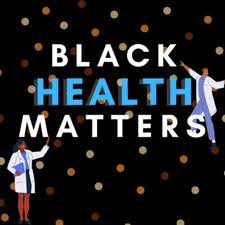Kat Stafford
apnews.com
Originally posted 11 September 23
Here are two excerpts:
But more than two months after the Supreme Court struck down affirmative action in college admissions, concerns have arisen that a path into medicine may become much harder for students of color. Heightening the alarm: the medical field’s reckoning with longstanding health inequities.
Black Americans represent 13% of the U.S. population, yet just 6% of U.S. physicians are Black. Increasing representation among doctors is one solution experts believe could help disrupt health inequities.
The disparities stretch from birth to death, often beginning before Black babies take their first breath, a recent Associated Press series showed. Over and over, patients said their concerns were brushed aside or ignored, in part because of unchecked bias and racism within the medical system and a lack of representative care.
A UCLA study found the percentage of Black doctors had increased just 4% from 1900 to 2018.
But the affirmative action ruling dealt a “serious blow” to the medical field’s goals of improving that figure, the American Medical Association said, by prohibiting medical schools from considering race among many factors in admissions. The ruling, the AMA said, “will reverse gains made in the battle against health inequities.”
The consequences could affect Black health for generations to come, said Dr. Uché Blackstock, a New York emergency room physician and author of “LEGACY: A Black Physician Reckons with Racism in Medicine.”
(cut)
“As medical professionals, any time we see disparities in care or outcomes of any kind, we have to look at the systems in which we are delivering care and we have to look at ways that we are falling short,” Wysong said.
Without affirmative action as a tool, career programs focused on engaging people of color could grow in importance.
For instance, the Pathways initiative engages students from Black, Latino and Indigenous communities from high school through medical school.
The program starts with building interest in dermatology as a career and continues to scholarships, workshops and mentorship programs. The goal: Increase the number of underrepresented dermatology residents from about 100 in 2022 to 250 by 2027, and grow the share of dermatology faculty who are members of color by 2%.
Tolliver credits her success in becoming a dermatologist in part to a scholarship she received through Ohio State University’s Young Scholars Program, which helps talented, first-generation Ohio students with financial need. The scholarship helped pave the way for medical school, but her involvement in the Pathways residency program also was central.
